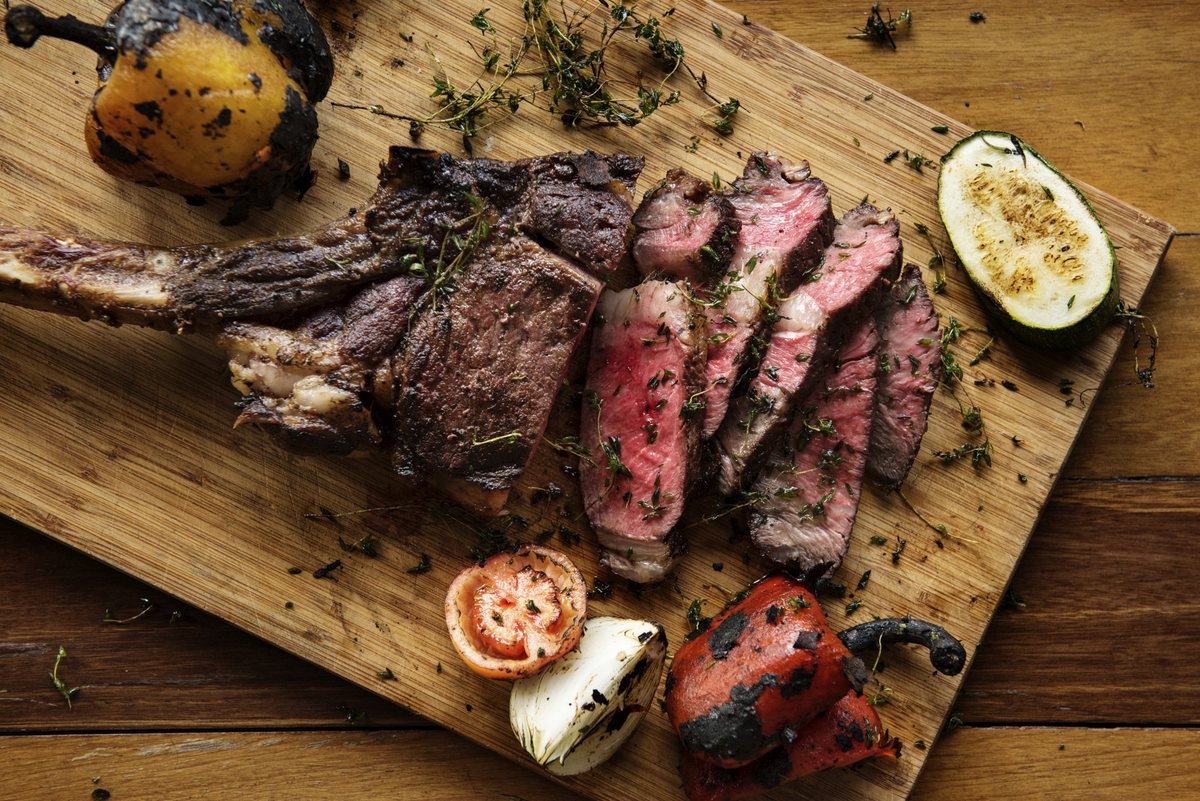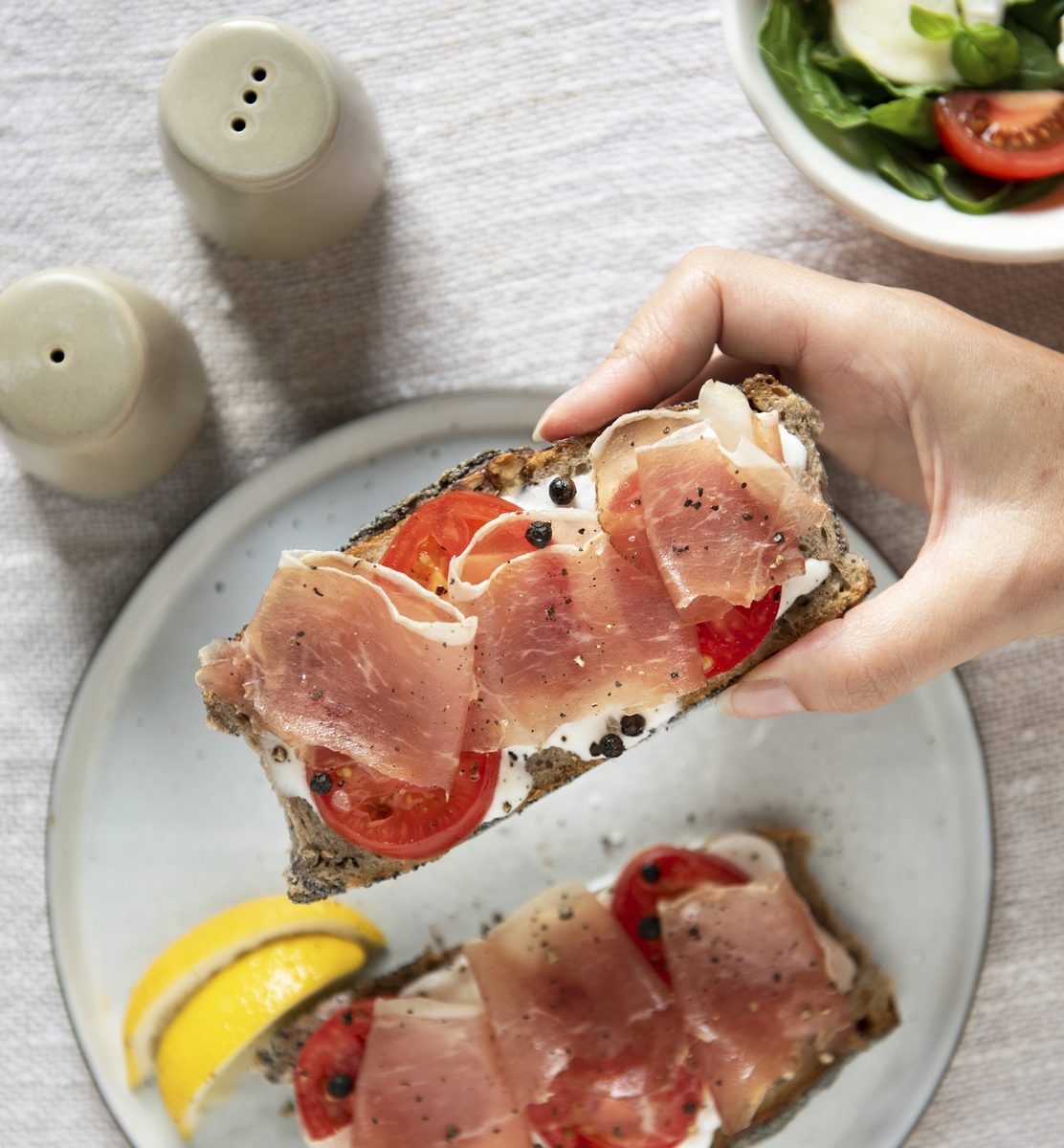
Fueling Success: A 7-Day Meal Plan for Teenage Athletes
The body of a teenage athlete is a high-performance machine that requires proper fuel to achieve the best performance on the field, court, or track. Eating the right foods at the right times is crucial to ensure optimal energy, muscle recovery, and overall health. I created this comprehensive blog post detailing a 7-day meal plan specifically for teenage athletes. Before we get into the details of your meal plan, it’s important to identify why you would spend your effort following such a regimented regime. Proper nutrition provides a range of benefits that could contribute to optimal physical development, energy, muscle growth and recovery. Here are some amazing benefits of eating correctly.
Energy Levels and Physical Performance:
Proper nutrition reinforces a steady supply of energy for physical activities. Carbohydrates are a primary source of energy and are essential for fueling intense workouts, supporting performance, and preventing early fatigue.
Muscle Growth and Repair Exhausted Muscles:
Adequate protein intake is crucial for building and repairing muscles, which is especially important for teenage athletes during growth spurts. Protein supports muscle recovery, helps prevent muscle breakdown, and assists in building lean muscle mass.
Proper Nutrition:
Proper nutrition provides essential vitamins and minerals that are crucial for various bodily functions. These functions include bone health, immune system function, and overall vitality. Calcium, vitamin D, iron, and magnesium are particularly important for teenage athletes.
Bone Health and Bone Density:
Calcium and vitamin D are vital for developing strong bones during the adolescent years. Proper nutrition can help reduce the risk of fractures and bone-related injuries that can hinder athletic performance.
Muscle Recovery and Injury Prevention:
A balanced diet helps to reduce inflammation, supports tissue repair, and aids in the recovery process after intense training or competitions. Nutrients like antioxidants, omega-3 fatty acids, and protein play significant roles in these processes.
Hydration and Dehydration:
Proper fluid intake is essential to prevent dehydration, maintain optimal body temperature, and support overall performance. Staying hydrated enhances endurance and cognitive function, which are crucial for athletic success. It will also reduce the risk of heat related injuries.
Cognitive Function:
Nutrient-rich foods, such as those high in healthy fats, vitamins, and minerals, support brain health and cognitive function. Good nutrition can enhance focus, decision-making, and mental clarity during training and competitions.
Weight Management:
Consuming a balanced diet helps maintain a healthy body weight. This is important for optimizing athletic performance, preventing injuries, and reducing the risk of chronic diseases. Often times for athletes it’s the need to increase body weight not the reduction of weight.
Immune System Support:
Nutrition supports a robust immune system, reducing the risk of illness and allowing athletes to stay consistent with their training regimens. The teen athlete is usually depleted of nutrition due to their training routine and are more susceptible to sickness.
Positive Mental State:
Proper nutrition contributes to overall mental well-being and can help reduce stress and anxiety levels. A nourished body is better equipped to manage the physical and emotional demands of competitive sports.
Long-Term Health Living:
Establishing healthy eating habits during adolescence lays the foundation for a lifetime of good health. Proper nutrition can help prevent chronic diseases such as heart disease, diabetes, and obesity later in life.
The benefits of following a strict athlete’s diet are extremely rewarding. It may not be the exact foods your teen desires, but a proper explanation of the above benefits may just be the trick to convince them to give it a chance. Follow closely and it will help unleash your full potential.

Day 1:
Power-Packed Breakfast
Start your week off strong with a breakfast that provides sustained energy throughout the day. Enjoy whole-grain oatmeal topped with fresh berries, a sprinkle of nuts, and a dollop of Greek yogurt. This combination offers complex carbohydrates, protein, and healthy fats to fuel your muscles and keep you feeling full.
Breakfast: Whole-Grain Oatmeal with Berries and Greek Yogurt
Portion Size: 1 cup cooked oatmeal, 1/2 cup mixed berries, 1/4 cup Greek yogurt, 1 tbsp nuts
Approximate Calories: 350-400
Lunch: Energizing Midday Meal
For lunch, go for a turkey and avocado wrap on whole-grain bread. Load it up with colorful veggies like spinach, tomatoes, and bell peppers. Turkey is an excellent source of lean protein, while avocados provide healthy fats to support brain function and overall vitality.
Lunch: Turkey and Avocado Wrap
Portion Size: 1 whole-grain wrap, 3 oz turkey breast, 1/4 avocado, assorted veggies
Approximate Calories: 400-450
Snack: Nutrient-Rich Boost
Delight in a handful of mixed nuts and a banana as an afternoon snack. Nuts offer a good dose of healthy fats and protein, while the banana provides quick-release carbohydrates to replenish energy levels.
Snack: Mixed Nuts and Banana
Portion Size: Handful of mixed nuts (about 1 oz), 1 medium banana
Approximate Calories: 250-300
Dinner: Muscle-Repairing Delight
Dinner should focus on muscle recovery. Grilled chicken breast, quinoa, and steamed broccoli make a well-rounded meal. The chicken supplies protein for tissue repair, quinoa delivers essential amino acids, and broccoli adds vitamins and minerals for overall health.
Dinner: Grilled Chicken Breast with Quinoa and Steamed Broccoli
Portion Size: 4-6 oz grilled chicken breast, 1/2 cup cooked quinoa, 1 cup steamed broccoli
Approximate Calories: 450-500
Total Approximate Calories for Day 1: 1450-1650
Day 2:
Rise and Shine Nutrition
Start your day with a nutrient-packed breakfast scramble. Mix eggs with spinach, tomatoes, and a sprinkle of cheese for a protein-rich start. Pair it with whole-grain toast to provide a balance of carbohydrates.
Breakfast: Breakfast Scramble with Spinach and Cheese
Portion Size: 2 scrambled eggs, 1/2 cup spinach, 1/4 cup cheese, 1 slice whole-grain toast
Approximate Calories: 400-450
Lunch: Wholesome Sustenance
Enjoy a hearty salad loaded with grilled salmon, mixed greens, and a variety of colorful veggies. Salmon is rich in omega-3 fatty acids, which support heart health and reduce inflammation – crucial for athletes.
Lunch: Grilled Chicken Caesar Wrap
Portion Size: 1 whole-grain wrap, 3 oz grilled chicken, assorted veggies, Caesar dressing
Approximate Calories: 450-500
Snack: Yogurt Parfait
A solid after school snack for a pick-me-up, indulge in a yogurt parfait layered with granola and fresh fruit. Greek yogurt offers protein and probiotics, aiding in digestion and promoting gut health.
Snack: Yogurt Parfait
Portion Size: 1 cup Greek yogurt, 1/4 cup granola, 1/2 cup mixed fruit
Approximate Calories: 300-350
Dinner: Carb-Loading Goodness
Engage in a satisfying pasta dish with whole-grain pasta, lean ground turkey marinara sauce, and a side of garlic sautéed spinach. Carbohydrates from the pasta will replenish glycogen stores, essential for sustained energy during training.
Dinner: Whole-Grain Pasta with Turkey Marinara and Spinach
Portion Size: 1 cup cooked whole-grain pasta, 3 oz ground turkey, marinara sauce, 1 cup sautéed spinach
Approximate Calories: 450-500
Total Approximate Calories for Day 2: 1600-1800
Day 3:
Balanced Start
Begin your day with a breakfast burrito. Fill a whole-grain tortilla with scrambled eggs, black beans, salsa, and a sprinkle of cheese. This combination offers protein, fiber, and a mix of vitamins and minerals.
Breakfast: Breakfast Burrito with Eggs, Black Beans, and Veggies
Portion Size: 1 whole-grain tortilla, 2 scrambled eggs, 1/4 cup black beans, assorted veggies
Approximate Calories: 400-450
Lunch: Wrap It Up to The Top
For lunch, enjoy a grilled chicken Caesar wrap using whole-grain tortillas. Load it up with romaine lettuce, lean grilled chicken, and a drizzle of Caesar dressing for a flavorful and satisfying meal.
Lunch: Veggie-Packed Wrap with Hummus and Turkey
Portion Size: 1 whole-grain wrap, 3 oz turkey, hummus, assorted veggies
Approximate Calories: 450-500
Snack: Fruity Delight
Slice up an assortment of fruits like watermelon, pineapple, and berries for a refreshing and hydrating snack. Fruits provide natural sugars and vitamins to keep you energized. This is a wonderful, sweet treat.
Snack: Fresh Fruit Assortment
Portion Size: Assorted fruits (e.g., watermelon, pineapple, berries)
Approximate Calories: 150-200
Dinner: Balanced Bowl
Construct a balanced dinner bowl with lean steak and brown rice. Add black beans, roasted vegetables, and a sprinkle of feta cheese. This plant-based meal offers a complete protein profile and a variety of nutrients.
Dinner: Lean Steak or Tofu with Quinoa and Vegetable Stir-Fry
Portion Size: 4-6 oz lean steak or tofu, 1/2 cup cooked quinoa, assorted stir-fry vegetables
Approximate Calories: 450-500
Total Approximate Calories for Day 3: 1450-1650

Day 4:
Protein-Packed Morning
Indulge in a protein-packed breakfast with a peanut butter banana smoothie. Blend together peanut butter, banana, Greek yogurt, and a splash of milk for a delicious and filling start to the day.
Breakfast: Peanut Butter Banana Smoothie
Portion Size: 1 banana, 1 tbsp peanut butter, 1 cup Greek yogurt, 1/2 cup milk, 1 scoop protein powder
Approximate Calories: 450-500
Lunch: Grilled Nutrient-Dense Delight
Craft a nutrient-dense salad with grilled chicken, quinoa, mixed greens, and a medley of colorful veggies. Drizzle with a balsamic vinaigrette for added flavor.
Lunch: Nutrient-Dense Salad with Grilled Chicken
Portion Size: Mixed greens, 3 oz grilled chicken, quinoa, nuts, seeds, veggies
Approximate Calories: 450-500
Snack: Trail Mix Triumph
Time to enjoy a bag of trail mixed with a mix of nuts, seeds, and dried fruits. This portable snack provides sustained energy and essential nutrients.
Snack: Trail Mix
Portion Size: Handful of mixed nuts and dried fruits (about 1 oz)
Approximate Calories: 200-250
Dinner: Fish Fiesta
Hope you are looking forward to baked white fish fillet with a side of sweet potato fries and steamed asparagus. Fish is an excellent source of lean protein and omega-3 fatty acids, while sweet potatoes offer complex carbohydrates.
Dinner: Baked White Fish Fillet with Sweet Potato Fries and Asparagus
Portion Size: 4-6 oz baked fish, 1 medium sweet potato, 1 cup asparagus
Approximate Calories: 450-500
Total Approximate Calories for Day 4: 1550-1750
Day 5:
Energizing Morning
Start the day with a high-energy breakfast by making whole-grain pancakes topped with fresh berries and a dollop of Greek yogurt. The combination provides carbohydrates, protein, and antioxidants.
Breakfast: Whole-Grain Pancakes with Berries and Greek Yogurt
Portion Size: 2 whole-grain pancakes, 1/2 cup mixed berries, 1/4 cup Greek yogurt
Approximate Calories: 400-450
Lunch: Hummus Veggie-Packed Up Wrap
Create a veggie-packed wrap with hummus, shredded carrots, cucumber, and sliced turkey. Hummus provides plant-based protein and healthy fats.
Lunch: Turkey and Veggie Wrap with Hummus
Portion Size: 1 whole-grain wrap, 3 oz turkey, hummus, shredded carrots, cucumber
Approximate Calories: 400-450
Snack: Cottage Cheese Boost
Have a serving of cottage cheese with pineapple chunks. Cottage cheese is rich in casein protein, which aids in muscle repair overnight.
Snack: Cottage Cheese with Pineapple
Portion Size: 1 cup cottage cheese, 1/2 cup pineapple chunks
Approximate Calories: 250-300
Dinner: Lean Protein Feast
Grill a lean steak or tofu, and pair it with a quinoa and vegetable stir-fry. This meal offers a balanced combination of protein, carbohydrates, and essential nutrients. This one is for the lean at heart.
Dinner: Grilled Lean Steak or Plant-Based Crumbles with Brown Rice and Roasted Vegetables
Portion Size: 4-6 oz lean steak or plant-based crumbles, 1/2 cup cooked brown rice, assorted roasted veggies
Approximate Calories: 450-500
Total Approximate Calories for Day 5: 1500-1700
Day 6:
Fresh Beginning Bowl
Kick-start your day with a nutrient-rich breakfast bowl. Combine Greek yogurt, granola, mixed berries, and a drizzle of honey for a satisfying and nourishing meal.
Breakfast: Greek Yogurt Bowl with Granola and Berries
Portion Size: 1 cup Greek yogurt, 1/4 cup granola, 1/2 cup mixed berries
Approximate Calories: 350-400
Lunch: Wrap and Go
Wrap up grilled chicken, avocado, black beans, and salsa in a whole-grain tortilla for a convenient and protein-packed lunch option.
Lunch: Grilled Chicken and Avocado Wrap
Portion Size: 1 whole-grain wrap, 3 oz grilled chicken, 1/4 avocado, assorted veggies
Approximate Calories: 400-450
Snack: Apple Slices with Nut Butter
Slice up an apple and enjoy it with a generous smear of almond or peanut butter. This snack delivers a blend of fiber, healthy fats, and vitamins.
Snack: Apple Slices with Nut Butter
Portion Size: 1 medium apple, 2 tbsp nut butter
Approximate Calories: 250-300
Dinner: Wholesome Comfort
Prepare a comforting meal of lean ground turkey or plant-based crumbles, brown rice, and roasted vegetables. Season with your favorite herbs and spices for a flavorful touch.
Dinner: Lean Ground Turkey or Plant-Based Crumbles with Brown Rice and Roasted Veggies
Portion Size: 4-6 oz lean ground turkey or plant-based crumbles, 1/2 cup cooked brown rice, assorted roasted veggies
Approximate Calories: 450-500
Total Approximate Calories for Day 6: 1450-1650
Day 7:
Hydrating Start
Hydrate and replenish electrolytes with a breakfast smoothie made from coconut water, mixed berries, spinach, and a scoop of protein powder.
Breakfast: Coconut Water Berry Smoothie with Protein Powder
Portion Size: 1 scoop protein powder, 1 cup coconut water, 1/2 cup mixed berries, 1 cup spinach
Approximate Calories: 350-400
Lunch: Nutrient-Dense Delight
Build a satisfying salad with quinoa, mixed greens, grilled chicken, nuts, seeds, and a variety of colorful veggies. Top with a tangy vinaigrette.
Lunch: Nutrient-Dense Salad with Grilled Chicken and Vinaigrette
Portion Size: Mixed greens, 3 oz grilled chicken, quinoa, nuts, seeds, veggies, vinaigrette
Approximate Calories: 450-500
Snack: Guacamole and Veggies
Whip up a batch of guacamole and enjoy it with carrot and celery sticks. Avocados offer healthy fats, while veggies provide vitamins and fiber.
Snack: Guacamole with Carrot and Celery Sticks
Portion Size: 1 medium carrot, 2 celery sticks, 1/4 cup guacamole
Approximate Calories: 200-250
Dinner: Balanced Farewell
Wrap up the week with a balanced dinner of baked fish or tofu, steamed broccoli, and a baked sweet potato. This meal offers a mix of protein, fiber, and vitamins to support recovery.
Dinner: Baked Fish or Tofu with Baked Sweet Potato and Steamed Broccoli
Portion Size: 4-6 oz baked fish or tofu, 1 medium sweet potato, 1 cup steamed broccoli
Approximate Calories: 450-500
Total Approximate Calories for Day 7: 1450-1650

The Grand Finally
A teenage athlete’s body’s has unique demands. Proper nutrition is key to achieving peak performance. This 7-day meal plan provides a blueprint for balanced and nourishing meals. This meal will supply the energy, nutrients, and hydration necessary to excel in your chosen sport. Consistency is key. Stick to this plan. Listen to your body and adjust as needed. If you prioritize your nutrition, you’ll set yourself up for success on and off the field. This ensures you’ll reach your full athletic potential.
Note: The following portion sizes and calorie counts are approximate and can vary based on individual needs, activity levels, and goals. If you require special dietary needs or restrictions, speak with your doctor or nutritional professional.
